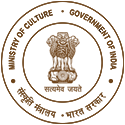Need to prevent dispute from taking a negative turn: Dipanker Shri Gyan
Mediation is a process of negotiation which includes a third party. This third party could be a professional mediator, it could be another person, it could be a group of people or even an institution which is involved in such a dispute. Mediation can happen both at personal level as well as institutional level. This way is shaped by one’s own philosophy, educational background and how one has been formed into a mediator. Moreover peer mediation is a process where in the school scenario, trained students act as neutral mediators. These students work with their peers to uncover the root causes of any disputes amongst them and decide on fair ways of resolving a conflict.
In this backdrop, as part of the 75th anniversary celebrations of the Azadi Ka Amrit Mohatsav, Gandhi Smriti and Darshan Samiti organised a workshop on “Mediation” with representatives of various schools from Bihar and Varanasi on April 9, 2021. Principals and teachers from Rajkiya Buniyadi Vidyalaya, Brindavan, West Champaran; Kasturba Balika Vidyalaya, Bithiharwa, Champaran, Kasturba Balika Vidyalaya Intermediate College, Varanasi took part in the interactive workshop conducted by Dr. Vedabhyas Kundu who said that GSDS proposes to take this programme on Mediation will start with schools and reach villages for ‘dispute free villages’ and further to the national level.
In his key-note address, Director GSDS, Shri Dipanker Shri Gyan stressed on the whole idea and importance of understanding the concept of ‘mediation’ and in the context of mediation with school children, pointed out four different issues of conflict – between children, between classes, between students of different villages on question of superiority (a normal phenomena of village supremacy) and between teachers versus students.
He necessitated the need for preventing disputes from taking a negative turn and emphasised on the role of teachers, who he said play a vital role in sorting out individual and public differences or disputes at their individual as well as other levels and suggested methods such as counselling, involvement of guardians, engaging students in creative pursuits, etc to address conflicts or disputes and said that teachers in schools should discourage comparisons of superiority either between children or even their community or village.
Dr. Vedabhyas Kundu in his address emphasised on the need to increase the potential of the students. Saying that “Mediation is not control, but the third party resolves disputes impartially”, Dr. Vedabhyas asked the teachers to hear out the grieving parties impartially and then mediate impartially without being judgemental. He further laid importance of communication for what he said, “Successful mediation process where cooperation, collaboration and respect should be the fundamental principles.
The interactive session brought out different ideas that were shared by the teachers of the schools. Shri Bisheshwar Jha pointed out that during the parent-teacher meeting every month, such issues are discussed and involvement of parents is sought for redressing the disputes.
Shri Sanjay Kumar Rai teacher of Rajkiya Buniyadi Vidyalaya, West Champaran emphasised that all teachers of the Vidyalayas should write their issues which could be discussed during the next workshop with GSDS.
Shri Girdhari Paswan mentioned that the teachers face great difficulties when parents or guardians get involved in disputes of children and aggravate the situation.
Shri Vivek of Kasturba Balika Vidyalaya also mentioned that sometimes the trouble monger child rushes to the teacher first to create an impression and said that teachers as well as principals need to be impartial in their dealing with children per se.
Shri Shambhu Kumar Jha reiterated the need for organising separate physical workshops with teachers and students of different schools, and, thereafter organise a national seminar on this subject. Shri Shashikant also underlined the need for workshops in schools for awareness generation purposes.
Smt. Anita Singh of Kasturba Mahila Vidyapeeth Intermediate College, Sewapuri, Varanasi mentioned the technical difficulties and practical problems that the students and the teachers are facing in view of COVID-19. She said while there are several areas of disputes, both situational and occasional, one need to go into the root cause of such disputes and act accordingly for redressing them.
Shri Rajdeep Pathak asked if Smt. Anita Singh could throw some light on issues of gender disputes that she comes across in her school and if peer mediation could help in addressing such issues.
The workshop concluded by Dr. Vedabhyas Kundu proposing the vote of thanks.












